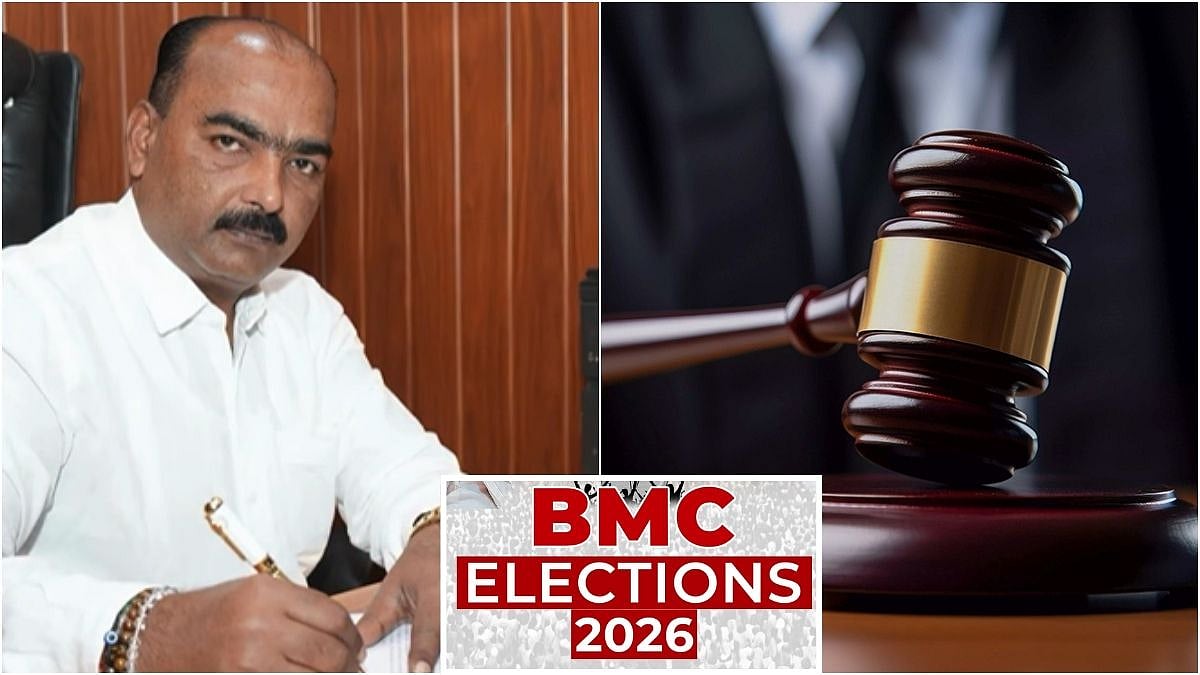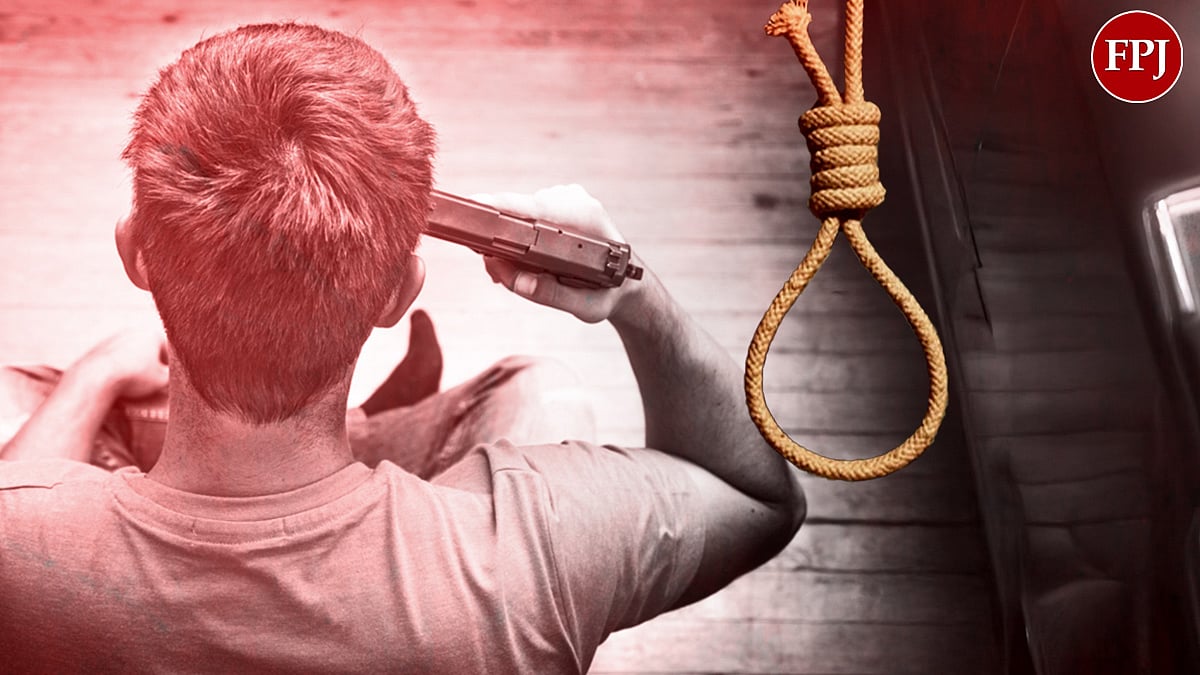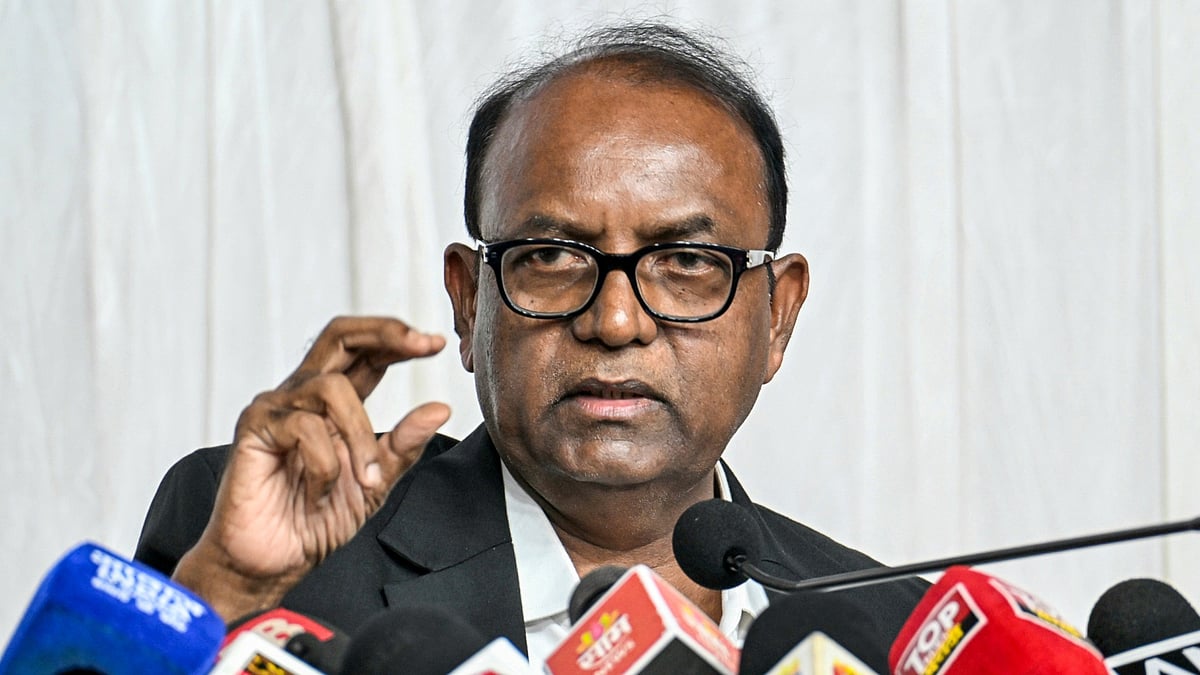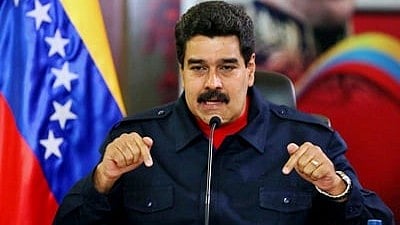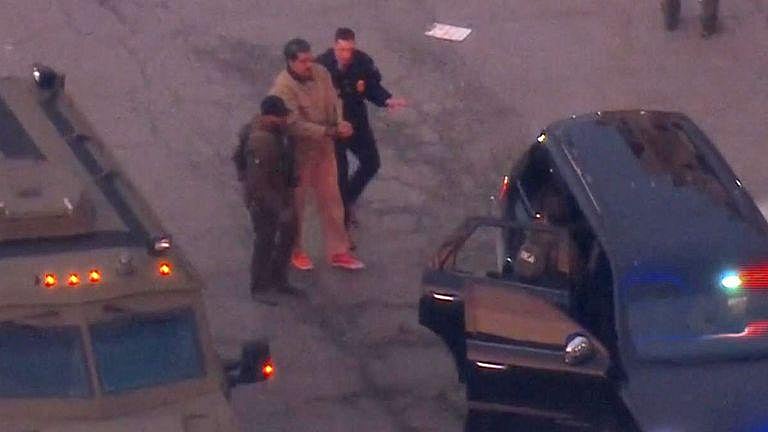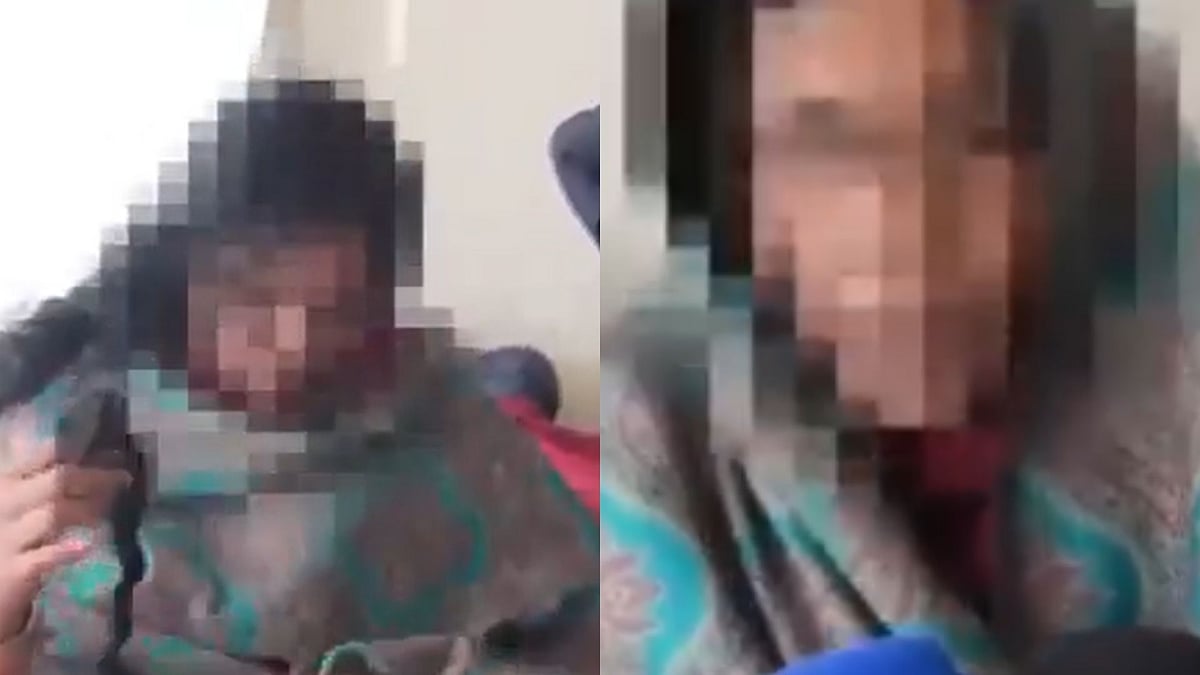Hong Kong police made their first arrest under a new national security law imposed by China's central government, arresting a protester on Wednesday for carrying a flag calling for Hong Kong's independence.

Riot police detain a man as they clear protesters taking part in a rally against a new national security law in Hong Kong on July 1 | AFP
The man was arrested after police had issued multiple warnings to the crowd at a protest in the city's Causeway Bay shopping district that they might be in violation of the law, according to a police statement on Twitter.
Hong Kong police used water cannon on Wednesday to disperse activists protesting against Beijing's new national-security legislation, reported Reuters.
Police officers fired pepper balls at people gathered in Causeway Bay to show their anger against the new national security law.
Local media in Hong Kong reported that more than 100 protesters gathered at Times Square, some of them chanting slogans calling for Hong Kong independence despite the police's earlier warning that this action can be in violation of the national security law.
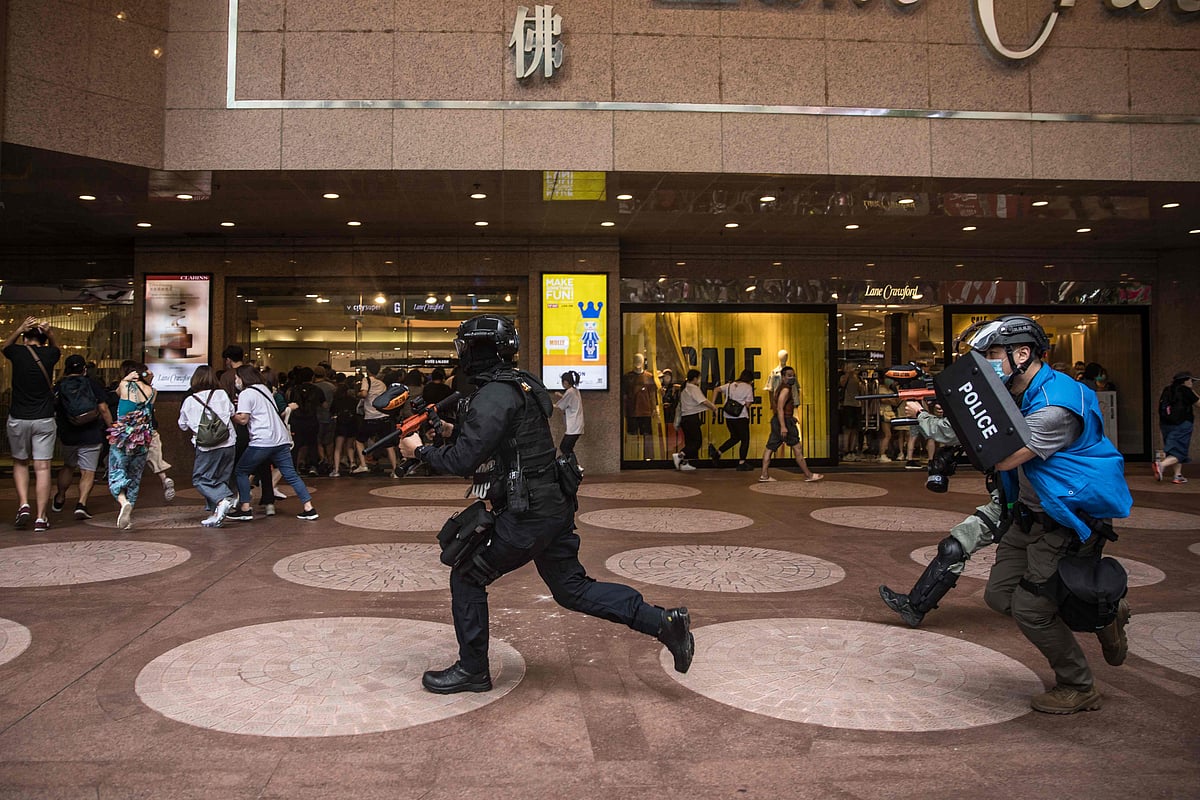
AFP
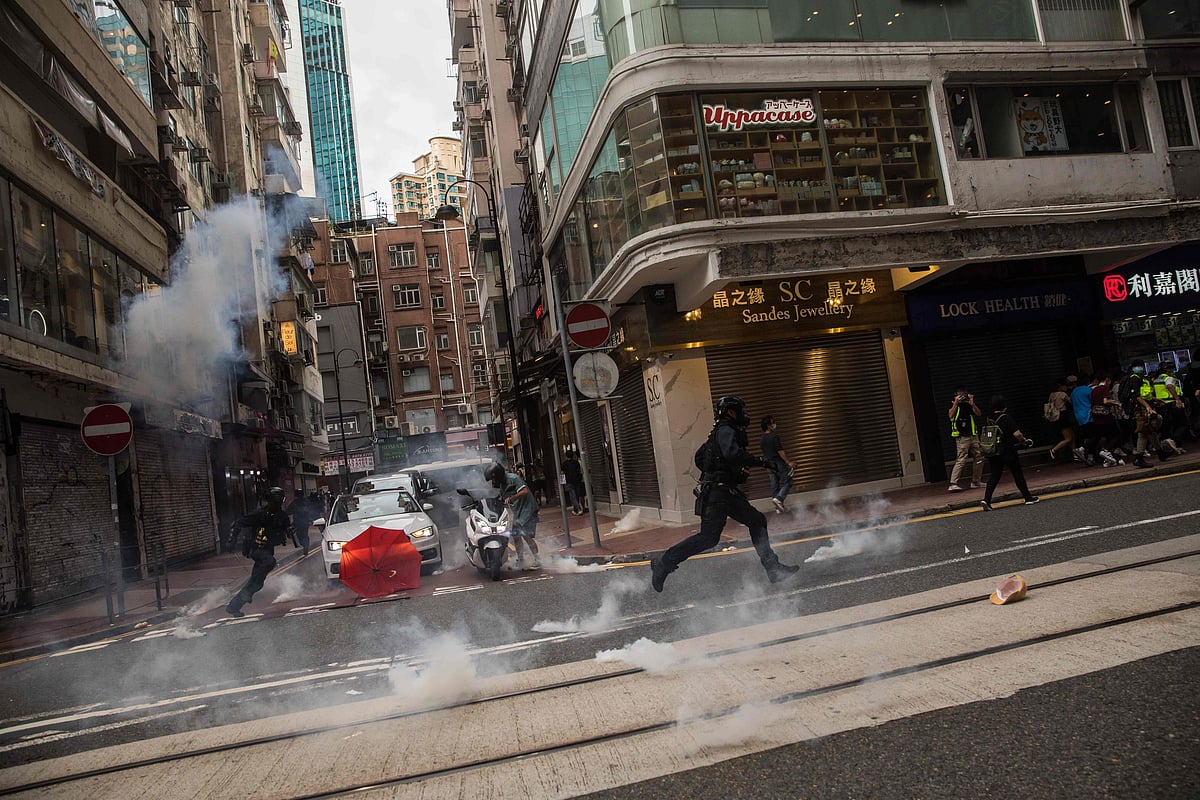
AFP
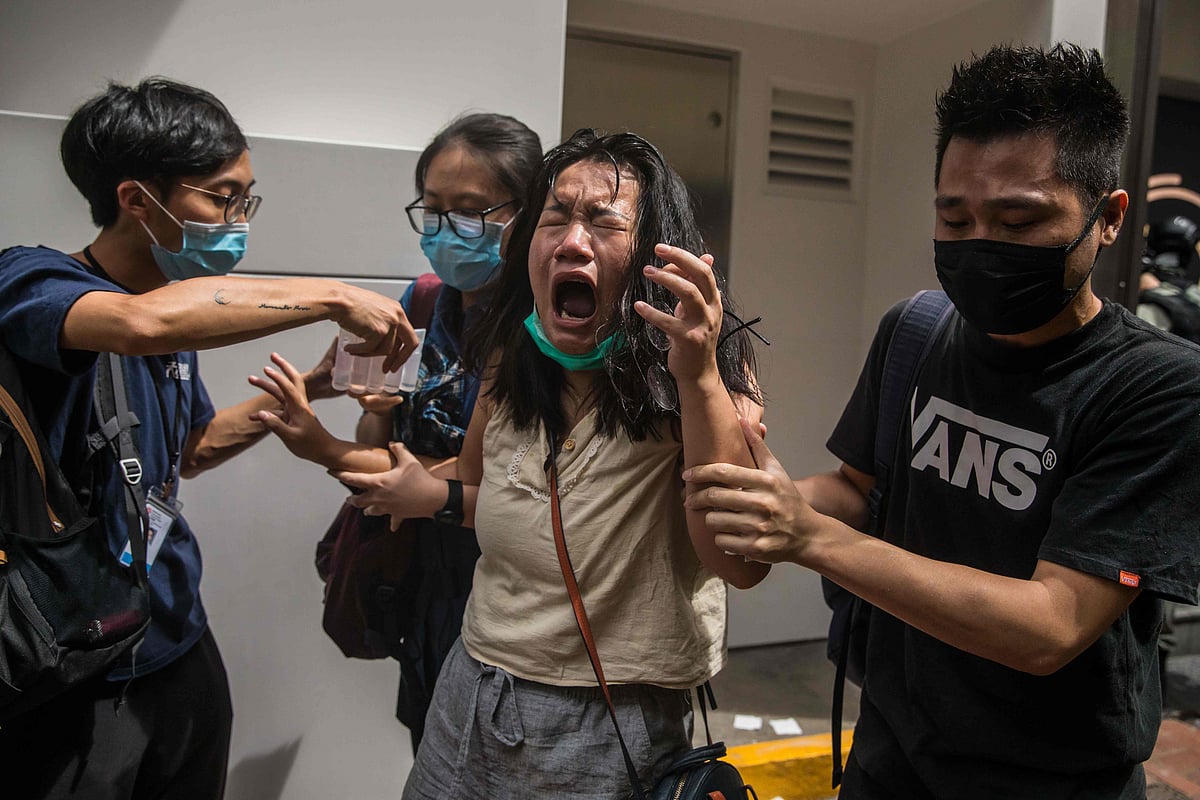
AFP
The law, imposed by China after last year's anti-government protests in the semi-autonomous territory, took effect on Tuesday at 11 pm (1500 GMT).
The law makes secessionist, subversive, or terrorist activities illegal, as well as foreign intervention in the city's internal affairs.
Any person taking part in secessionist activities, such as shouting slogans or holding up banners and flags urging for the city's independence, is in violation of the law regardless of whether violence is used.
The most serious offenders of the legislation, such as those deemed to be masterminds behind the crimes, could receive a maximum punishment of life imprisonment. Lesser offenders could receive jail terms of up to three years, short-term detention or restriction.
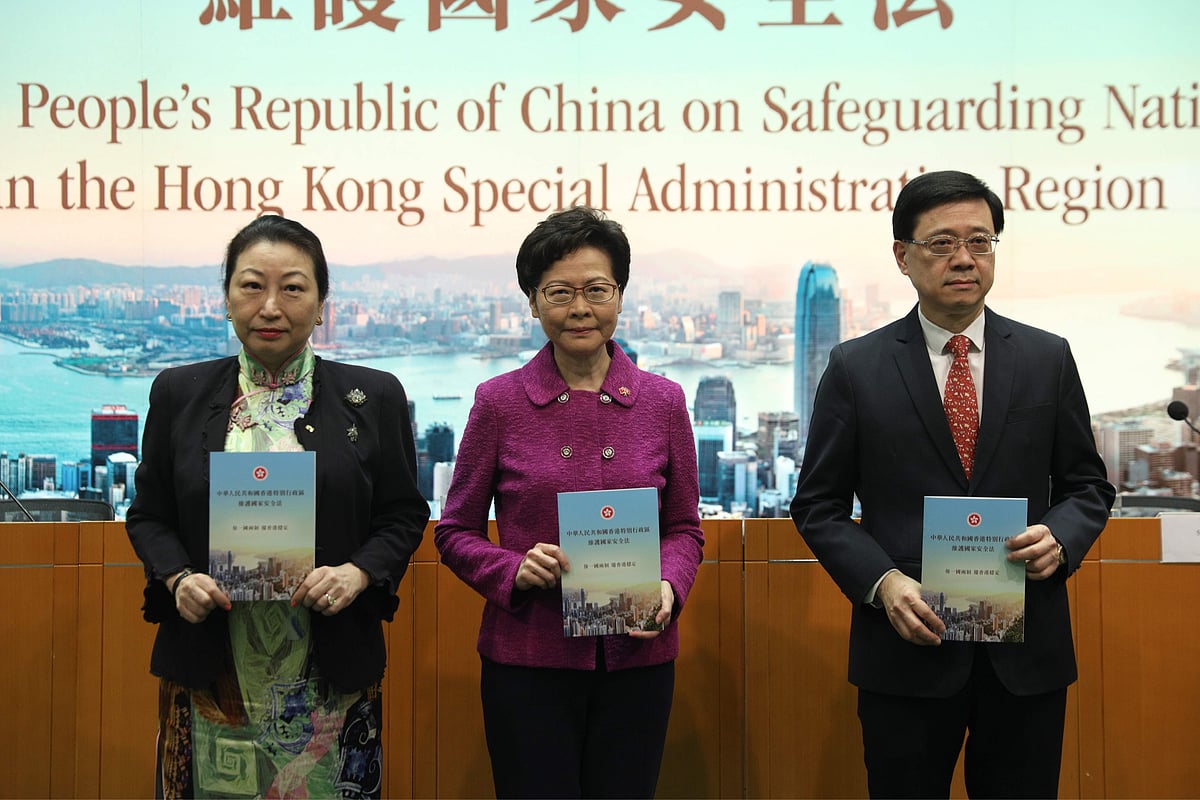
AFP
Hong Kong's leader strongly endorsed the new law in her speech marking Wednesday's 23rd anniversary of the territory's handover from colonial Britain.
"This decision was necessary and timely to maintain Hong Kong's stability," Carrie Lam said following a flag-raising ceremony and the playing of China's national anthem.
A pro-democracy political party, The League of Social Democrats, organized a protest march during the flag-raising ceremony. About a dozen participants chanted slogans echoing demands from protesters last year for political reform and an investigation into accusation of police abuse.
The law's passage on Tuesday further blurs the distinction between the legal systems of semi-autonomous Hong Kong, which maintained aspects of British law after the 1997 handover, and the mainland's authoritarian Communist Party system. Critics say the law effectively ends the "one country, two systems" framework under which Hong Kong was promised a high degree of autonomy.
The law directly targets some of the actions of anti-government protesters last year, which included attacks on government offices and police stations, damage to subway stations, and the shutdown of the city's international airport.
Acts of vandalism against government facilities or public transit can be prosecuted as subversion or terrorism, while anyone taking part in activities deemed as secessionist would also be in violation of the new law.
Hong Kong's police force had issued a statement saying they would consider as illegal any flag or banner raised by protesters deemed to be promoting Hong Kong's separation from China or expressing support for independence for Tibet, Xinjiang and the self-governing island democracy of Taiwan that China claims as its own.
Concerns have also been raised over the fate of key opposition figures, some of whom have already been charged for taking part in protests, as well as the disqualification of candidates for the Legislative Council elections scheduled for September.
Schools, social groups, media outlets, websites and others unspecified will be monitored and their national security awareness will be raised, according to the law's text, while China's central government will have authority over the activities of foreign non-governmental organizations and media outlets in Hong Kong.
It says central government bodies in Hong Kong will take over in "complicated cases" and when there is a serious threat to national security. Local authorities are barred from interfering with central government bodies operating in Hong Kong while they are carrying out their duties, according to the text.
The legislation was mandated under Hong Kong's local constitution but an earlier attempt to pass it in the city's legislative body in 2003 was shelved in the face of massive public opposition.
Having lost patience, Beijing finally decided to circumvent the Hong Kong legislature and have it passed Tuesday by the Standing Committee of the National People's Congress, China's rubber-stamp parliament.
President Xi Jinping signed a presidential order putting the law into effect and it has been added to the Basic Law, Hong Kong's constitution.
The US has already begun moves to end special trade terms given to the territory. The Trump administration has also said it will bar defense exports to Hong Kong and will soon require licenses for the sale of items that have both civilian and military uses, citing the possibility of them falling into the hands of the People's Liberation Army, which owes its loyalty to China's ruling Communist Party.
Congress has also moved to impose sanctions on people deemed connected to political repression in Hong Kong, including police officials, while Britain has said it could offer residency and possible citizenship to about 3 million of Hong Kong's 7.5 million people.
China has said it will impose visa restrictions on Americans it sees as interfering over Hong Kong.
US Secretary of State Mike Pompeo denounced the threat of a visa ban as a sign of "how Beijing refuses to take responsibility for its own choices" and said the law's adoption "destroys the territory's autonomy and one of China's greatest achievements." The law's passage comes after Hong Kong's legislature in early June approved a contentious bill making it illegal to insult the Chinese national anthem.
(With inputs from Agencies)

